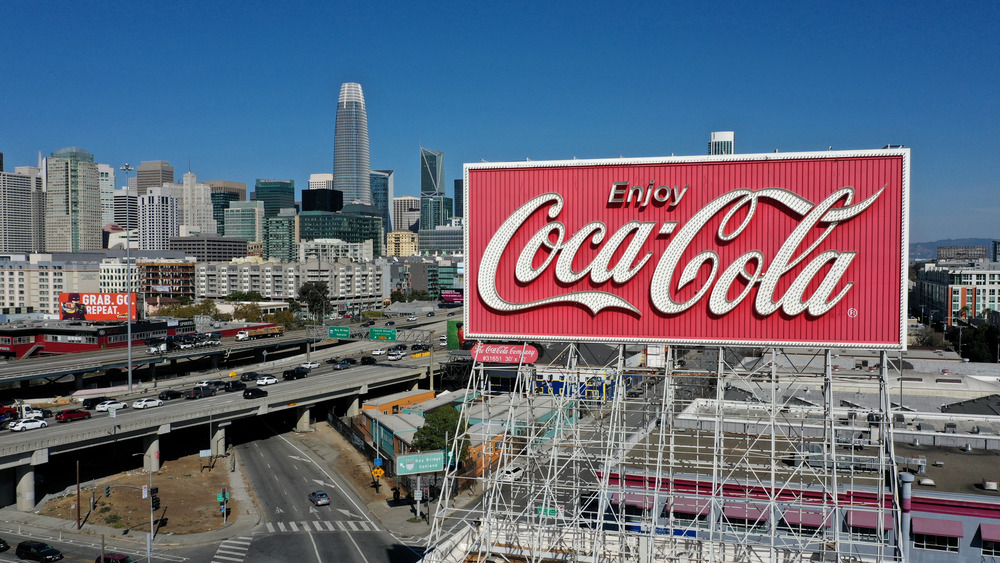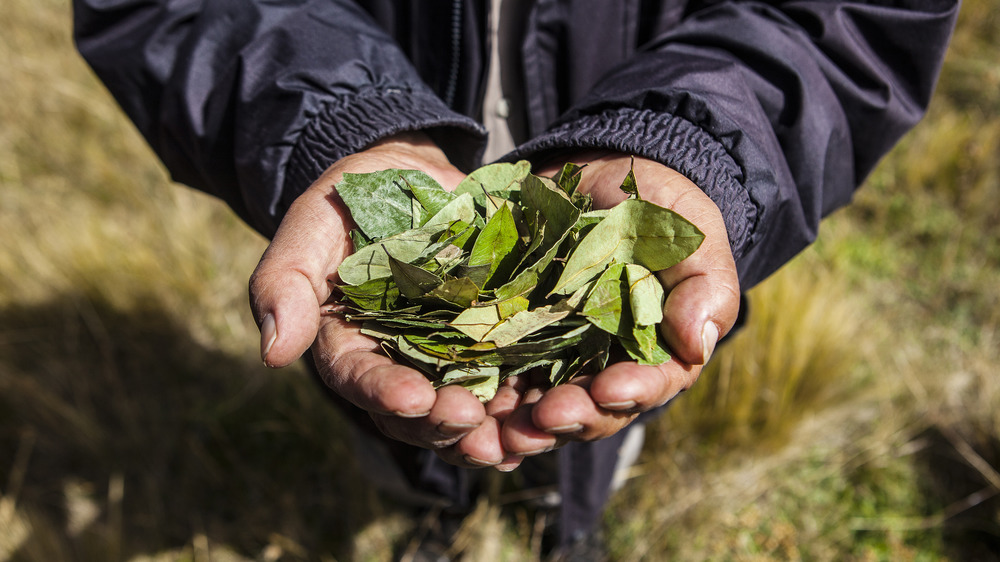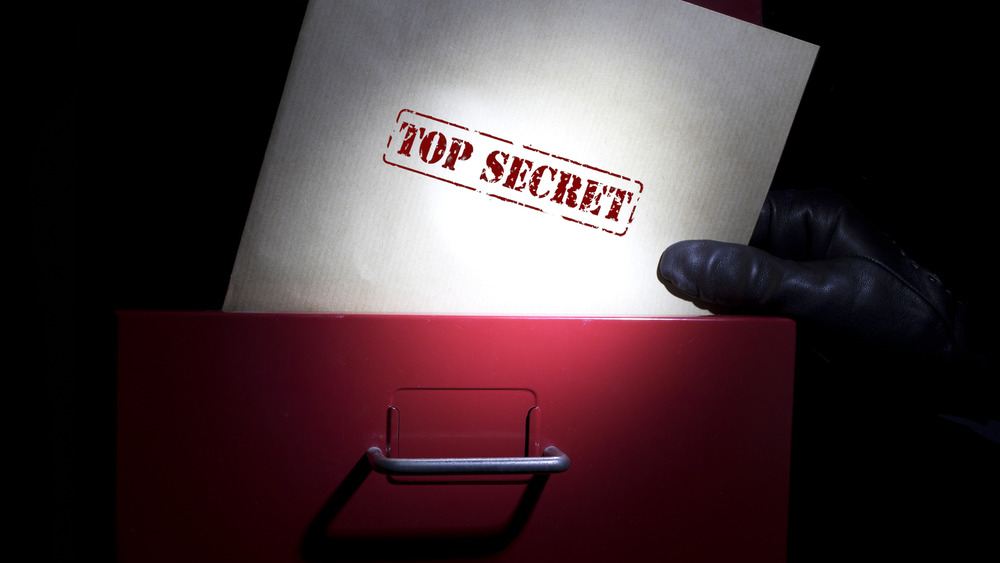The Secret Deal That Coca-Cola Has With The DEA
In the mid-1800s, a new beverage fad took over the United States and Europe. Coca wine was fortified wine infused with coca leaves, i.e., cocaine. According to The Drinks Business, the stimulating wine drink initially had the approval of everyone from U.S. presidents to Catholic popes. One such wine was made by a Civil War vet named John Pemberton, who had cooked up his "brain tonic" as a means to kick the nasty morphine habit he'd picked up after being injured in the war. His Pemberton's French Wine Coca also contained an extract of the African kola nut, which is chock-full of caffeine, just to give the cocaine a little kick.
However, by the end of the 19th century, some regulators in the United States began to have a problem with one of the drink's ingredients: the alcohol. Pemberton made his booze in Georgia, a state which presaged the national prohibition of alcohol with its own statewide ban a few decades earlier. So Pemberton took the alcohol out of his tonic and called it Coca-Cola, which he sold to soda fountains as a syrup to be mixed with mineral water. His original recipe had five ounces of coca leaves in each gallon of syrup, but that would be cut by 90 percent by 1891, and down to zero by the turn of the century. However, coca leaves are still part of the recipe to this day.
How does Coca-Cola get its coca leaves?
Although Pemberton took the cocaine out of the original recipe for Coca-Cola, he still needed the leaves for flavor. A Coca-Cola spokesman told The New York Times in 1996: "Ingredients from the coca leaf are used, but there is no cocaine in it and it is all tightly overseen by regulatory authorities." But, coca is one of the most regulated plants on the globe, so how does Coca-Cola even get the leaves in the first place? According to Business Insider, the beverage company has a deal with the Drug Enforcement Administration to get coca leaves so that the world can get its Coca-Cola fix. The DEA lets Coca-Cola import coca leaves from Peru and Bolivia in order to get the part of its secret recipe, which it hides behind the term "natural flavors" on the ingredients list.
The dried leaves are processed by a company called Stepan Corporation, which has a processing plant in Maywood, New Jersey. It processes around 100 metric tons of coca leaves annually, extracting the cocaine and sending the now less-fun leaves on to Coca-Cola. Stepan then throws a massive party. Ok, no, not really. It ships the cocaine off to Mallinckrodt Corporation, which makes a topical anesthesia called cocaine hydrochloride. This is used to numb the mouth, nose, and throat for medical purposes. Pretty much the opposite of a party.
The real secret ingredient in the Coca-Cola recipe
It's no secret that Coca-Cola guards its recipe more closely than the NSA does its unlawful surveillance programs. According to NPR's This American Life, the most secret part of the recipe is an ingredient called "merchandise 7x." (No, this is not science fiction. This is the true story behind the Coca-Cola flavor.) Charles Howard Candler, the son of Asa Griggs Candler — who, according to Investor's Business Daily, bought the recipe from Pemberton for $2,300 — wrote that the day his father showed him the secret recipe was like "inducting me into the holy of holies." He said that there was no written formula for the recipe, and no labels on the bottles of ingredients. They were "identified only by sight, smell, and remembering where each was put on the shelf. And I thereupon experienced the thrill of making up, with his guidance, a batch of merchandise 7x."
According to historian Mark Pendergrast, this extreme secrecy is still held to this day. The only written formula for merchandise 7x is locked away in a bank vault at Sun Trust, and only two people in the whole world know what's on that piece of paper. "Only two people at any given time know how to actually mix the 7x flavoring ingredient," said Pendergrast. "And that these people never travel on the same airplane in case it crashes." Who knows what's in the secret Coca-Cola ingredients, but the DEA makes sure that it's not cocaine anymore.


